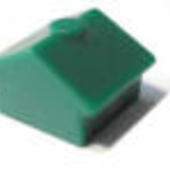About three months ago I wrote a post about the probability that we are in the middle of what is going to be our "lost decade". I'm certainly not the only one to have made this comparison. Knowing what I know now, I think that that possibility is not only going to be a reality, but a "lost decade" may actually be overly optimistic considering what we have already "lost" and what still lays ahead for our economy.
The term "lost decade" refers to Japan's economy during the 1990s when they experienced asset bubbles in their stock market and housing market, not unlike what we are seeing in America today. The result was that their economy struggled to grow for an extended period of time and a lot of people lost a lot of their wealth. However, I think you could make the argument that what we are dealing with today is much more toxic than what Japan experienced because of the width, depth, and scale of the problem within our banking system. It is much bigger than most people realize.
The 4th quarter GDP numbers that were announced by the government on Friday showed that the economy contracted by -3.8% (this is likely to be revised higher) for the quarter. The aggregate result was that the economy grew by just 1.3% in 2008, it's worst showing since 2001 when it grew by just 0.8%.
Over the past seven years the U.S. economy has struggled to grow, not unlike Japan in the 1990s. Over the past 8 years, the U.S. economy has only averaged 2.18% real GDP growth per year according to data taken from the Bureau of Economic Analysis.
 What is more interesting is how the stock market and real estate markets have "performed" since 2001.
What is more interesting is how the stock market and real estate markets have "performed" since 2001.
On December 29th of 2000, the Dow closed at 10,788. Today, on January 31st of 2009, the Dow closed at 8000. In other words, if you had invested $1 in the Dow in 2001, you would have 74 cents to show for it.
In terms of real estate, in 2001, according to the NAR, the median home sales price was $153,100. Today, in December of 2008, the median home sales price is $175,400. But before you get too excited about this "gain" over the past 8 years, you need to consider that based on the 9.3 month's supply of housing, it is virtually guaranteed that home values will continue to fall over the next couple of years. They can't not based on the excess supply of homes (foreclosures) as well as the number of foreclosures that will come to the market over the next three years (see the graph below).

What all of this information means is that it is probable that our economy, stock market, and home values will all be either unchanged or worse off in 2011 or even 2012 than they were in 2001.
Short of a breath-taking government intervention in the housing market to prevent the 8 million foreclosures that Credit Suisse is predicting over the next four years due to mortgage resetting, this economic storm still has yet to run its course. There is still going to be more financial and economic damage.
And while all of this is discouraging, it is worth mentioning that it could always be worse. On January 4th of 1984, according to Yahoo Finance, Japan's Nikkei closed at 9,927. Over 25 years later, on January 30th of 2009, the Nikkie closed at 7,994. Over this 25 year span, if you had invested $1 in the Nikkei, you would have 80 cents to show for it.


Comments(3)